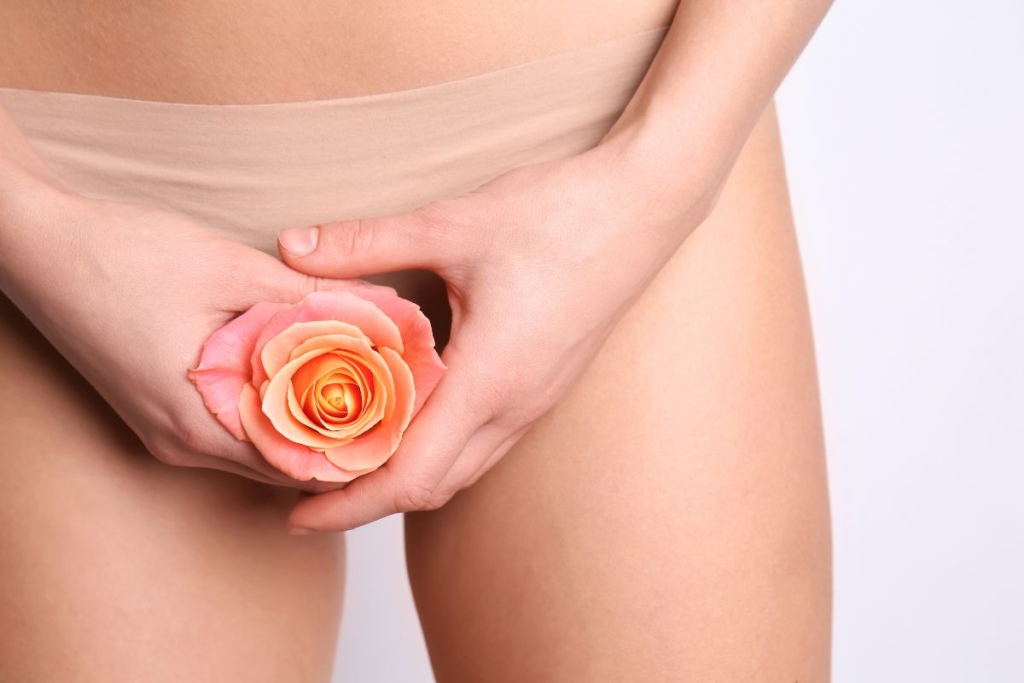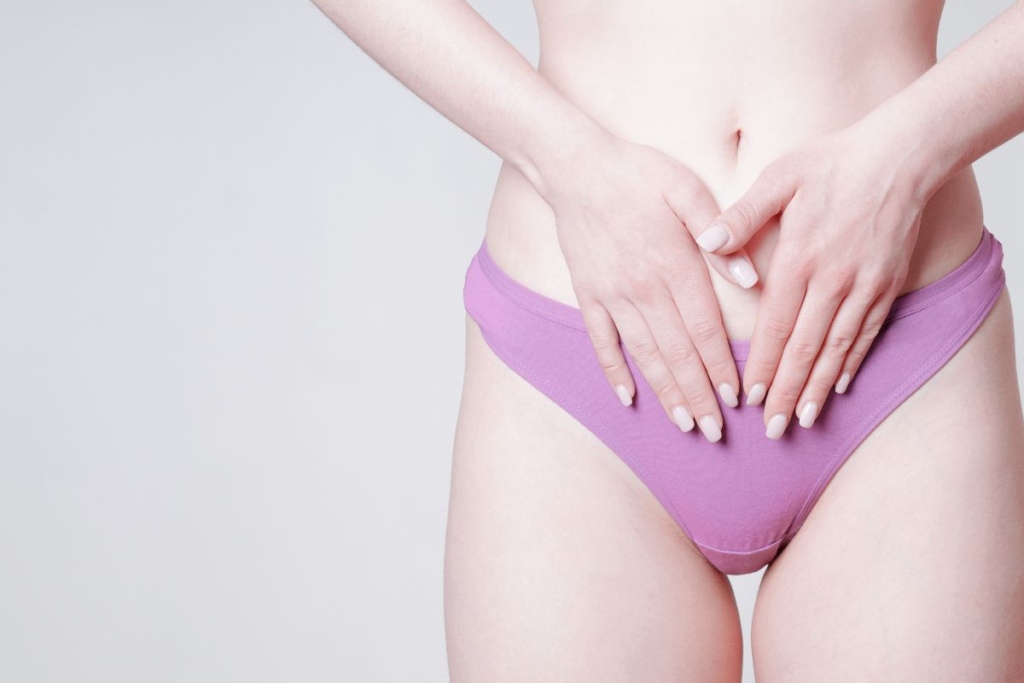Vulva itching can be one of the most painful, annoying things to experience, but finding relief from it is dependent on what caused the itching to occur in the first place.

While some origins of vulva itching must have medical or antibiotic treatment, some other causes can be relieved with simple home remedies.
Curious? Today we will talk about what vulva itching is, what causes it, and the recommended remedies to help you ease this very annoying, debilitating itch! Stick around to find your remedy!
What Is An Itchy Vulva?
The vulva is the outer part of the vagina. This area includes the labia, the clitoris, and the vaginal opening. Itching around the vulva is also often known as vulvitis and is described as an irritation focused on these areas of the female genitals.
It can often be caused by an infection, allergic reaction, menopause, or sometimes skin conditions (usually ones that are already present).
Causes Of Vulva Itching
So, what could cause your vulva itching? There are 4 primary causes. Let’s look at them.
1. Irritants/Allergic Reactions
The primary cause of an irritated, itchy vulva would be contact dermatitis, or, in this case, vulva dermatitis. This could be a reaction to irritants, or an allergic reaction to a scented soap, spermicide, detergent, condom, or even new hygiene products.
It can also be the result of douching or washing the vagina too often. Remember, the vagina does not need much cleaning as it is self-cleaning, and going too far beyond this can irritate it.
2. Vaginal Infections
Vaginal infections which are known to cause itching of the vulva can include STIs (Sexually Transmitted Infections) such as chlamydia bacterial, trichomoniasis, and gonorrhea. As well as this it could also be caused by genital warts or bacterial vaginosis.
The most common, however, are yeast infections such as thrush, which are most often caused by the vagina’s pH balance being disrupted.
3. Skin Conditions
Many women who have pre-existing skin conditions such as eczema, folliculitis, psoriasis, or dermatitis can experience vulva itching as a symptom of this.
4. Menopause
A decrease in the level of estrogen produced during menopause can often lead to vaginal skin thinning, this is medically known as vaginal atrophy.
When this happens it can cause the soft folds of the skin of the vulva to feel itchy and dry, which can lead to irritation.
Can You Treat Vulva Itching Naturally?
When the cause of vulva itching is an infection, it is most often the case that medical treatment is needed (yes, even for yeast infections).
However, it is possible that a home remedy could provide you with some relief from the itching while you take your medication.
Alternatively, if you have an allergic reaction, have a pre-existing skin condition, or are even starting menopause as the cause of the vulva itching, then taking steps to find relief at home is usually enough.
Considering Home Remedies For Itching Vulva

Let’s look at some of the ways you may be able to remedy your itchy vulva from the comfort of your own home. These are the most highly recommended ways of doing so and should help you ease the irritation.
Bath Oils
If you have dry skin from a pre-existing skin condition such as dermatitis or eczema, and this is causing your vulva itching, then the National Eczema Association recommends that you take regular baths with naturally-made oil. This should help to moisturize your skin and soothe itching.
However, if you choose to do this then ensure you use dye-free, unscented oils to prevent further irritation or thrush.
If this is your remedy, then soak in the bath 1 time a day for 10 to 15 minutes in order to ease your inflammation and itching.
Naturally-Made Vaginal Moisturizers
Naturally made vaginal moisturizers are easily applied for gaining relief from vulva itching and inflammation.
If this is how you intend on relieving your irritation, then experts recommend that you wash the area 1 to 2 times each day with warm water and unscented soap.
Make sure that you pat the area dry and do not rub it, then apply an unscented, specialized, organic moisturizer to soothe the skin.
If you are unsure of a product, make sure you check with your doctor or check to see if you can get one prescribed. Many products on shelves are not always good for the vagina and can cause further irritation or yeast infections.
Baking Soda
At the National Eczema Association, experts point out that taking a soak in a warm bath with a ¼ cup of baking soda can work well to relieve skin itching and irritation.
However, you can also make a paste with baking soda and water drops and apply it to the irritated area.
You can also add 2.5 milliliters of baking soda to 1 liter of water and wash the vulva with this. Again, be careful not to disrupt your vagina’s natural pH level when doing this, or you could make it worse.
Colloidal Oatmeal
A study in 2015 found that colloidal oatmeal, which is oat kernels ground into a fine powder to dissolve in water, can reduce itching intensity on the body, including on the vulva!
Simply add ½ cup to 1 ½ cups of colloidal oats to a warm bath and soak in it for up to 15 minutes. Do not soak for any more than 15 minutes in an oat bath as this could lead to your skin losing moisture which worsens itching.
If unsure, speak to your doctor before you do this.
Vitamin E
Vitamin E for vaginal health is available as a suppository or as a cream. This is actually widely recommended by experts in women’s health to relieve vulva itching.
In a 2016 study, menopausal women who were suffering from thinning, dry, vaginal skin noted that vitamin E helped to reduce itching and inflammation significantly.
Telling If An Infection Causes The Itching
When a vaginal infection is the cause of your itching, women tend to notice that they have a few symptoms alongside the itch.
This can include burning sensations upon urination, pain during sexual intercourse, and even thick vaginal discharge which could be yellow, green, or perhaps even a white lumpy thick cottage cheese-like substance.
As well as this the vaginal discharge may smell foul, or even fishy. The lips of the vagina and irritation may also appear to be red and/or swollen.
Infections that have symptoms such as these include yeast infections, bacterial vaginosis, and STIs. Should you notice symptoms such as these, feel free to use your home remedy, but also schedule an appointment with your doctor to get proper medication.
Yeast infections are the most common, and all women will usually get this once in their lifetime. They are caused by a disruption of the vaginal pH balance, this can happen due to many reasons, such as:
- Using improper soaps.
- Incorrect wiping.
- Certain bath products
- Pads/tampons applied for too long or too old.
- Sexual intercourse.
- Some materials of underwear
- Pregnancy.
- Antibiotics.
- Diabetes.
- Impaired immune systems.
- Contraceptives/hormone therapy that increases estrogen levels.
There are many other ways you can get this, so it is the best option to check off the list first. You may even be able to get home-testing kits for yeast infections and BV now, depending on where you live.
Prevention
As well as treating vulva itching with home remedies, it is also important to consider lifestyle changes to prevent it from happening again.
Avoid using fragrances or scented products around your vagina and vulva. Scented soaps, tampons, bubble baths, panty liners, and more can all cause allergic reactions and/or yeast infections.
You should choose to wear cotton underwear instead of underwear made of synthetic materials to allow your vulva to breathe naturally.
After swimming, remove your swimsuit immediately, and after a workout, remove your damp workout clothes asap.
You should also swap out tight-fitting clothing for comfortable clothing more often. It is important to allow the air to circulate.
Always ensure that you practice sex safely to avoid STIs, and choose natural lubricants and condoms to prevent further irritations.
Douching may seem like a good idea on a surface level, however, it kills good bacteria as well as harmful bacteria, so abstaining from this is best. Wash only with unscented soaps and warm water.
And, of course, always wipe front to back, so you do not bring bacteria from your rectum into the delicate skin of your vulva.
Overall
Some cases of vulva itching may require medical treatment, and even if not, it is still wise to speak to your doctor to discuss preventative measures. However, having some home remedies in your roster against vulva itching is not a bad thing.
Speak to your doctor and use home remedies, any relief is a big relief when it comes to an irritated vulva!




